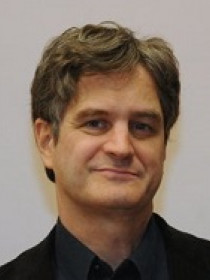
Chris Rhomberg
Connect with Chris
About Chris
Rhomberg's research focuses on historical and contemporary issues of labor, race, urban development and politics in the United States. Major themes in his writings include class and racial formation in urban social movements, path dependency and institutional change, trends in the organization and governance of work and labor relations in the 21st century, and new approaches to analyzing strikes. He serves on the Board of Directors for the National Writers Union Service Organization and the advisory board for the Puffin Foundation, and has consulted for multiple exhibits at the Museum of the City of New York.
Contributions
In the News
Publications
Shows that vibrant, creative experimentation has never ceased. In lieu of new federal regulation, public and private sector national unions and local affiliates have been actively trying out new approaches that pair organizing with mechanisms that support bargaining.
Discusses a historic turning point for workers in the United States.
Examines ways that workers have struggled with and against precarious labor in different contexts, from low-wage retail and service workers in Canada and the USA, to manufacturing and construction workers in India and China. Shows that the role of the state has been crucial in shaping the terrain of struggle at the workplace and in the wider community.
Reviews the historical strengths and limits of traditions of strike theory in the United States. Builds on the emerging power resources approach. Proposes a model based on a multidimensional view of associational power, power resources, and arenas of conflict in the economy, state, and civil society. Demonstrates the utility of our approach via a case analysis of strikes in the “Fight for $15” campaign in the United States.
Discusses a conservative political offensive against unions and initiatives of non-federal and local movement. Mentions conflicts intensifying during the Trump administration, as a resurgence of political activity and the polarization of institutions that govern or work on civil life.
Analyzes a detailed study of one of the largest and longest strikes of the last several decades in the U.S. Discusses the forces leading to the breakdown of collective bargaining, the spread of labor conflict beyond the firm and into the community, and the transformation of the strike from an economic tactic and protected legal right to a more high-risk protest in defense of the principle of unionism.
Analysis of how public policy and the evolution of labor law have undermined the right to strike in the U.S., leading to a return to a pre-New Deal era of what historians describe as the “judicial repression” of workers’ rights to organize and act collectively.
Analyzes the rush to attract “creative” industries in American cities that overlooks the challenges to building the infrastructure and workforce development for urban cultural industries, the threat of “low-road” conditions for creative workers, and the importance of labor market regulation for successful growth.
Analyzes the 1920s Ku Klux Klan movement in several cities in the Northern and Western U.S., in order to explain its surprising short-term political success and its long-term impact on the making of a white American middle class.
Traces the legacy of three successive yet radically different protest waves in Oakland, California, in the 20th century: the Ku Klux Klan in the 1920s, labor insurgency culminating in a general strike in the '40s, and the civil rights and black power movements of the '60s.